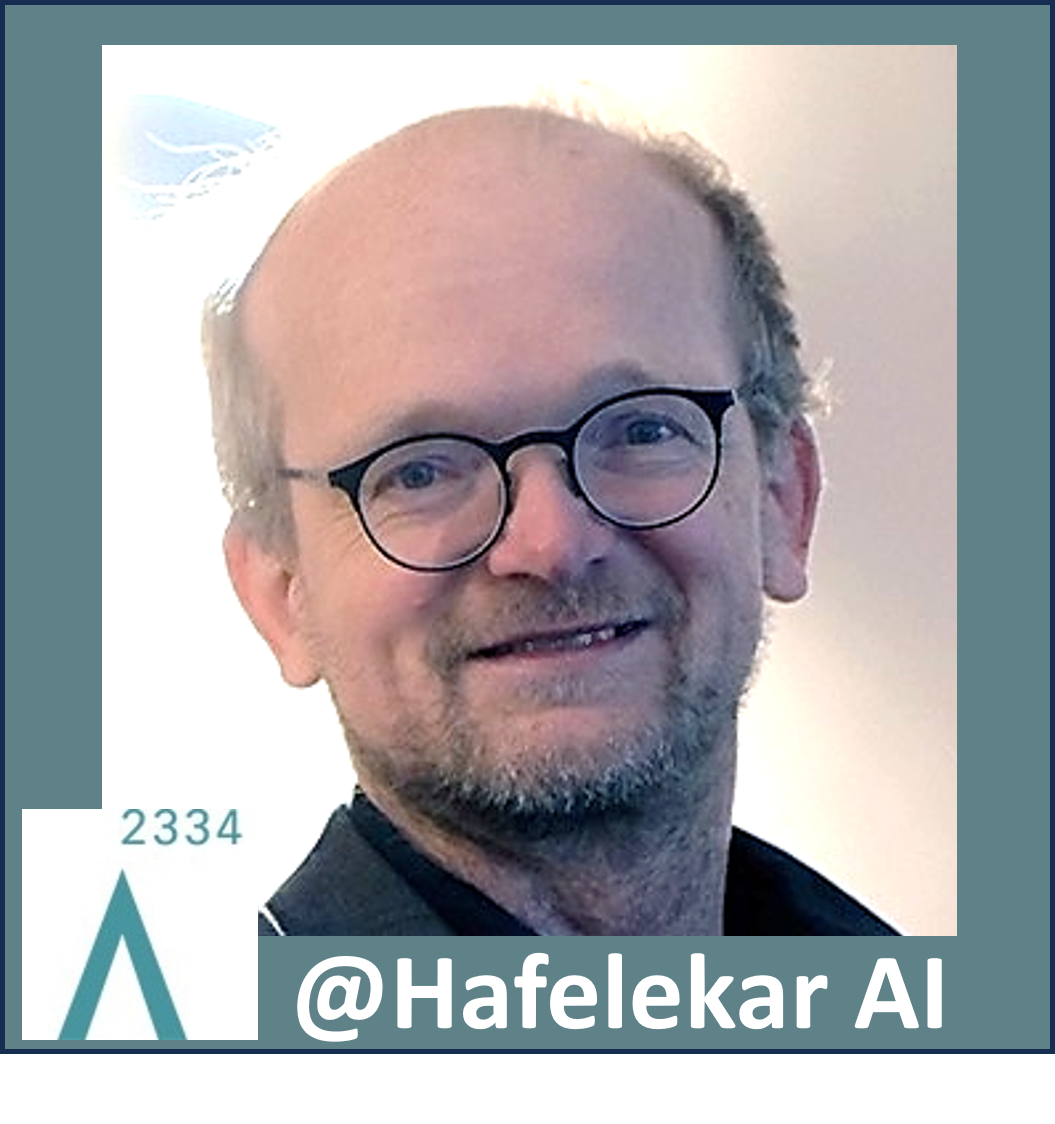Digi-Ageing
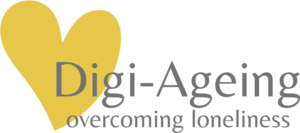
overcoming loneliness
“Loneliness in old age” is a well-known social phenomenon that still receives too little attention. However, the current pandemic clearly shows us that we need to pay more attention to the issue. Older people are increasingly isolated in this situation:Those in care facilities are secluded for their own protection, others have little contact with friends and family or live entirely on their own. People caring for older people are often overwhelmed by the many safety precautions and challenges in their own daily lives. This is also true for family caregivers.
Since October 2020, the international Digi-Ageing consortium has been working on a comprehensive concept that addresses these challenges and develops appropriate measures to counteract the phenomenon of “loneliness in old age”. One of the main goals is to increase competences in the use of digital tools in the elderly care sector and to create a strong network that develops joint solutions.
What we develop
- Research reports on the topic of loneliness in old age
- Creation of a network that specifically counteracts this phenomenon
- Digital diagnostic tool to be able to recognise “loneliness in old age” in good time
- Digital intervention tools for education providers in the field of elderly care, for caregivers, for caring family members and for interested older people themselves
- Curriculum for the Digi-Ageing Training Programme for the Care Sector
How we reach caregivers
Within the framework of the Digi-Ageing project, so-called “pilot trainers” are trained to subsequently conduct training sessions with other interested persons from the field of elderly care. These professionals will then implement the Digi-Ageing method in their own institutions and recruit other interested people.
Project duration
October 2020 to July 2023
Web
www.digi-ageing.eu
Facebook: www.facebook.com/digiageing
LinkedIn: www.linkedin.com/company/digi-ageing
Project Partner
- Hafelekar – Coordinator (Austria)
- UMIT Tyrol (Austria)
- University of Cyprus (Cyprus)
- Materia Group / Agecare (Cyprus)
- Consulenza Direzionale PZ (Italy)
- Asociación Caminos (Spain)
- Mykolo Romerio Universitetas (Lithuania)

This project has been funded with support from the European Commission. This communication reflects the views only of the author, and the Commission cannot be held responsible for any use which may be made of the information contained therein.
STRESS-LESS

Well-being and prevention of stress from working
The STRESS-LESS project aims to provide and support the uptake of innovative open pedagogies and approaches in the field of improving the digital competences as well as personal, social, and learning competences of staff of small and medium-sized companies (SMEs). The project will be focusing on equipping people with knowledge and teaching them habits how to better cope with digital stress.
Especially as a result of digital transformation and the associated changes in business models, workflows and the use of digital tools, employees are faced with constantly increasing demands in terms of flexibility, accessibility and transparency. As a consequence of this progress workers are suffering growing stress-related conditions.
The project objectives are to
- develop new training content about prevention and management of digital stress that can be applied in work-based settings or in “home-office” settings by SMEs, their staff, managers and trainers/mentors. The training content will be available online, free of charge via web and mobile based platform;
- empower VET teachers, trainers and mentors in work-based settings through the development of effective digital, open and innovative pedagogies;
- provide data from research and feedback from practical implementation of measures against digital stress to scientific organizations, training organizations and policy makers, so that they can build upon the results of the project.
As a result of the STRESS-LESS project in the long run SME staff and other learners will be healthier, less stressed, easier to communicate with, suffer less from depression and burn-out. SMEs staff will take less sick leave and be more productive, efficient and competitive.
Project duration
September 2020 to August 2022
Web
www.stress-less-project.eu
LinkedIn: https://www.linkedin.com/showcase/stress-less-project
Project Partner
- BF/M-Bayreuth– coordinator (Germany)
- Hafelekar (Austria)
- Horizon Software Solutions (England)
- Happiness Academy (Bulgaria)
- Consultoría de Innovación Social (Spain)

This project has been funded with support from the European Commission. This communication reflects the views only of the author, and the Commission cannot be held responsible for any use which may be made of the information contained therein.
BUILD
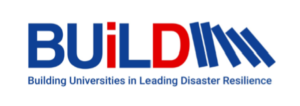
The mission of the BUiLD project is to develop Indonesia’s national Crisis Management and Resilience knowledge, preparedness and response capability, through the design and implementation of a Disaster Resilience Framework across Indonesia and its Higher Education Institutes.
The project aims to create a Centre of Excellence in Disaster Resilience in each participating Indonesian university. Under the umbrella of a National Disaster Resilience Network, these centres will act as local enablers in the implementation of a comprehensive Disaster Resilience Framework. Based on the penta helix model, the vision behind the creation of the centres and the national disaster resilience network is to facilitate collaboration between universities and the public, private and third sector. This Disaster Resilience Framework integrates resilience capacity building at multiple levels, including the individual, programme, institutional and national level. It addresses several aspects of resilience capacity-building, including university governance, disaster response and recovery capability, disaster awareness training, curriculum development, internal and external information exchange and knowledge transfer as well as fundraising.
Objectives
- One of the project’s objectives is to increase the attractiveness of disaster resilience education and career development in order to build future research, innovation and leadership capacity. Aligned with the aims of the Erasmus+ Capacity Building in Higher Education programme, the project will lead to the modernisation of university governance across Indonesia, improve the management and functioning of universities in crisis situations, and strengthen their external relationships.
- Cumulatively, Indonesian partner universities have a diverse network and close working relationships with key organisations. These include the National Ministry of Education and Higher Education (formerly MoRTHE), the National Disaster Mitigation Agency (BNPB), non-governmental disaster aid organisation ACT Alliance, the Muhammadiyah Disaster Management Centre (MDMC) and funding platforms kitabisa and Lazismu.
- At local level, partner universities have working relationships with emergency services, including the police, hospitals, the military and with local businesses and communities. The project endeavours to consolidate and considerably strengthen the disaster resilience expertise and response capability that already exist in participating universities and their networks.
By October 2022 a minimum of 8 universities across Indonesia will have adopted the Build Best Practice Model for University Governance. A minimum of 8 universities will have participated in the BUiLD Disaster Awareness Campaign and been trained on delivering a disaster awareness workshops to students, staff and associated stakeholder groups and the use of virtual reality equipment. A minimum of 8 Centres of Excellence in Disaster Resilience will have been created A working BUiLD Disaster Resilience Network for cross-sector information sharing and knowledge transfer will have been established, supported by a web portal.
Project duration
November 2019 to October 2022
Web
Project Partners
- University of Gloucestershire, Great Britain – Coordination
- Universitas Ahmad Dahlan (Java), Indonesia
- Universitas Islam Indonesia (Java), Indonesia
- President University (Java), Indonesia
- Universitas Andalas (West Sumatera), Indonesia
- Universitas Lambung Mangkurat (Kalimantan), Indonesia
- Universitas Muhammadiyah Palu (Sulawesi), Indonesia
- Universitas Khairun (North Maluku), Indonesia
- Universitas Surabaya (Java), Indonesia
- University College Copenhagen, Denemark
- Instituto Polytechnico Porto, Portugal
- External Evaluator Joerg Krauter from SYNK Gruppe, Germany
- Hafelekar Unternehmensberatung (Austria)

This project has been funded with support from the European Commission. This communication reflects the views only of the author, and the Commission cannot be held responsible for any use which may be made of the information contained therein.
LEITNER AG

trainings for executive
We worked betwen 2008 and 2012 on a regular basis together with LEITNER AG, a global specialist in ropeway engineering. The Leitner Group sets great value on staff development processes, as described in detail in the organizational and management model and the internal code of ethics.
Our role was it to assist LEITNER Technologies mainly in two areas which are built upon each other.
- surveys of staff, with the following topics:
- The surveys are aimed at all staff across the country and are conducted anonymously. There is enough room for your own opinions and statement.
- Analysis key statements for the management.
- Detailed analysis of results
- Development of an overall assessment
- Proposal on possible areas of action
- Training for managers – here are some examples:
- Fundamentals of management of employees
- Personnel management workshops
- Successful conducting of staff dialogues
- Conflict management in the company
- and more workshops individually catered for LEITNER AG
Client
LEITNER Technologies
Project duration
Staff surveys from 2008 till 2011
Annual trainings from 2008 till 2012
Partners
Trainers (German and Italian speaking) from the Hafelekar network
DigiVET
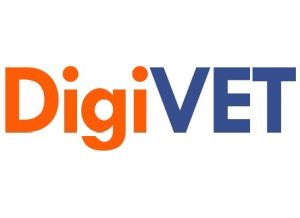
Digital Media for VET in SMEs
Digital media offers a new and effective way to engage employees who have low levels of qualifications in small SMEs in learning. In many countries the formal education level of employees is still weak and migration within and to Europe has led to an inflow of additional learners who lack the levels of language to engage in learning using traditional techniques. Digital media can help to overcome this barrier to learning by using more audio, video and visual material to support learning. However, many VET trainers and SMEs lack the competences needed to use digital media.
The objective of the project is to enhance the use of visual digital media in SMEs, to support the training of employees with low levels of qualifications. This will be done through the development of modular online learning programs about the use of visual digital media. The focus will be on visual material for the field of VET learning and shaped by guiding principles and concepts which were used, implemented and evaluated in Germany by ISOB and ‘SoWiBeFo e.V.’ (e.g. ‘Coaches for Digital Learning’ and ‘Media Pedagogy for Teachers’). The conceptual model for learning and the expertise generated from the projects will be used to develop similar material for VET trainers and facilitators of learning in small SMEs.
Objectives
VET trainers and facilitators in SMEs will acquire competences for digital learning in two steps:
- acquiring basic skills in digital visual media use
- using digital media in training of staff who have low levels of qualifications
A key feature of the project is the provision of support from trained coaches within the partner organizations, who will be available to support in-company trainers and facilitators as they introduce digital learning. In-company facilitators will work with the end recipients (low qualified staff as learners), digital and visual forms of workplace learning.
Final beneficiaries – Low qualified employees and employees with a lack of educational language skillsVisual media as instructional videos make learning independent, allow for repeating the content as needed, and can be designed to promote language proficiency at the same time.
Project Duration
November 2019 to June 2022
Project Partners
- University of Gloucestershire– Coordination
- Hafelekar Unternehmensberatung , Austria
- Mednarodna Fakulteta, Slowenia
- Fundatia Pentru Promovarea, Romania
- ISOB Institut für Sozialwissenschaftliche Beratung, Germany
- Gazi Universitesi, Turkey
- Centro de Formacao Profissional, Portugal

This project has been funded with support from the European Commission. This communication reflects the views only of the author, and the Commission cannot be held responsible for any use which may be made of the information contained therein.
SymfoS – YC
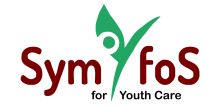
SymfoS for Youthcare
“SymfoS for Youth Care” develops an innovative counseling method based on the approach of symbol work. Its implementation in the youth care system would significantly improve the integration chances of disadvantaged young people (NEETS) in Europe. Due to a lack of integration in many areas of life, they are increasingly excluded from participation in society.
With the methodical approach of symbol work (developed by Wilfried Schneider) as an innovative counselling tool, the project aims to enable young people in youth welfare to effectively support disadvantaged young people. Innovative features are on the one hand the transfer of the previous method from vocational guidance to the youth welfare system in each partner country and on the other hand the extension of the SymfoS educational approach with web courses for initial training (Higher Education) at universities (Social Care).
In youth welfare, working with symbols offers young people an additional, universal language. In short, symbolic work means getting a person to reach out to themselves. Symbols are helpful in situations that are difficult or impossible to describe with other means of communication.
Project duration
September 2018 to August 2021
Web
Homepage: www.symfos-youth.eu
Facebook: www.facebook.com/SymfoS
Linkedin: www.linkedin.com/groups/8704665
Project Partners
Sozialwerk Düren (Deutschland)
Hafelekar Unternehmensberatung (Österreich)
Asociacion Caminos (Spanien)
Colegio Oficial de Ciencias Politicas y Sociologia (Spanien)
University of Gloucestershire (England)
Instituto Politecnico Do Porto (Portugal)
Associacao A3S (Portugal)

This project has been funded with support from the European Commission. This communication reflects the views only of the author, and the Commission cannot be held responsible for any use which may be made of the information contained therein.
TeBeISi
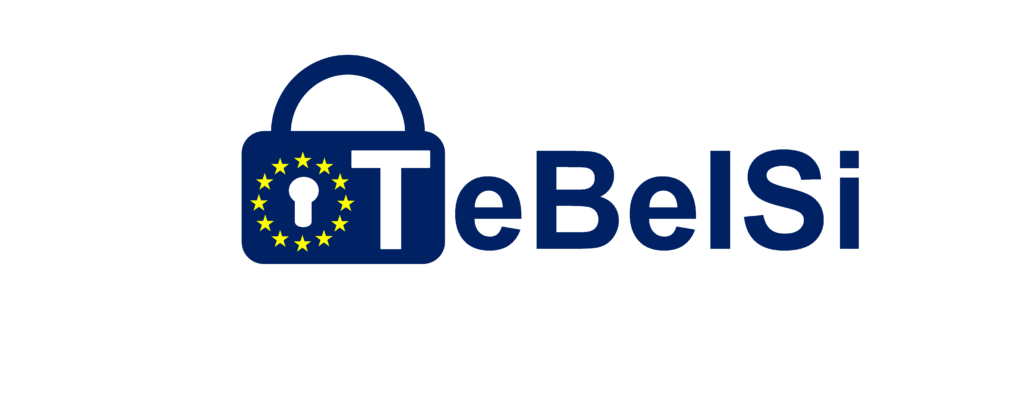
Partial Certification Information Security
The IT sector is characterized by short innovation and product cycles among developers and manufacturers. Due to constantly changing requirements in the IT sector, learning and recognition of informal skills is a decisive factor. The lack of certification opportunities leads to a lack of experts* in the field of information security. This is why the “Betriebswirtschaftliches Forschungszentrum für Fragen der mittelständischen Wirtschaft e. V.” (Business Management Research Centre for Questions of Small and Medium-Sized Businesses) was initiated. (BF/M Bayreuth) initiated this European joint project.
The Europe-wide uniform assessment and recognition of informally acquired skills has enormous potential for combating the shortage of skilled workers in the field of information security. Newly developed job profiles reflect the current needs of small and medium-sized enterprises. Based on this, a learning curriculum is being developed and previously acquired knowledge is recognised and validated.
Project duration
September 2018 to August 2021
Web
Homepage: www.tebeisi.eu
Facebook: www.facebook/tebeisi
Project Partners
BFM – Betriebswirtschaftliches Forschungszentrum Mittelstand (Germany)
Hafelekar Unternehmensberatung (Austria)
SCV – Studio Centro Veneto (Italy)
MRU – MYKOLAROMERIS UNIVERSITY (Lithuania)
WSBINOZ (Poland)

This project has been funded with support from the European Commission. This communication reflects the views only of the author, and the Commission cannot be held responsible for any use which may be made of the information contained therein.
AISAB
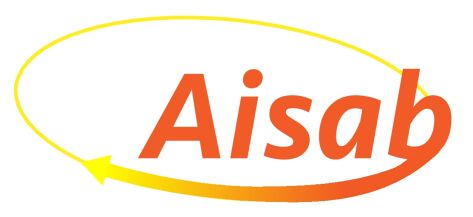
Applied Innovation for Students and Business
The AISAB Project addresses the need within the EU to improve the level of innovation and its impact, particularly in SMEs. Building on the work of other innovation projects and materials, it will develop approaches to develop the skills that support SME innovation from an HEI context and through VET. These complementary streams of work will see implementation of initiatives to drive innovation, both during the project and also on a sustainable basis, by embedding the outcomes in the day-to-day activities of HEIs and organisations delivering VET to SMEs.
The project objectives are to develop learning materials aimed at enhancing student skills in assessing and implementing innovation, and build tools that students can use to facilitate their impact when consulting in SMEs. It will also develop a toolkit for SMEs to self-diagnose their innovation practice, as well as putting in place business intervention approaches that can be used to enhance innovation practices in SMEs.
Objectives
- Develop a series of tools and techniques that leverage the work of previous projects, and established good practice, into a HE context for use with students to enhance their knowledge of innovation;
- Create a handbook/process guide enabling HE students to work within SMEs to assess and develop innovation practice to enhance their skills in assessing and implementing innovation;
- Design and develop a toolkit for SMEs to self-diagnose innovation practice and identify weaknesses;
- Develop business intervention approaches to enhance innovation practices in SMEs;
- Create case studies for use in a VET and HE context to support dissemination and exploitation of project results;
- Write and present a research paper exploring reasons for weaknesses in the underlying culture and support infrastructure relating to innovation in SMEs.
Project duration
September 2017 till April 2020
Web
Project partners
Universität Gloucestershire (England) – Koordination
Hafelekar Unternehmensberatung (Österreich)
PROMPT-H Bildungs GmbH (Ungarn)
Universität Sopron, Wirtschaftsfakultät (Ungarn)
Universität Primorska, Fakultät für Management (Slowenien)
Korona plus d.o.o., Ljubljana (Slowenien)
Fondazione Instituto Tecnico Superiore, Bergamo (Italien)
Universidad de Granada (Spanien)

This project has been funded with support from the European Commission. This communication reflects the views only of the author, and the Commission cannot be held responsible for any use which may be made of the information contained therein.
SymfoS
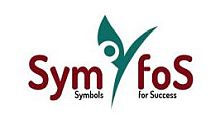
Symbols for Success
SymfoS – Symbols for Success project promotes an innovative education and career guidance method addressed to young disadvantaged people based on sets of symbols.
Very often the traditional counselling methods are aimed at young people who have advanced writing and reading skills and are already supported by a strong social system. These kinds of interventions can be ineffective with young people who, for various reasons, find difficulties in expressing in words their situation, their needs and their goals for the future. Working with symbols is an opportunity for them to use a universal language to do it.
SymfoS aims to support young people who encounter difficulties in finding their own pathway within the education system and labour market to set their own goals for their future. SymfoS further aims to provide educational guidance and professional operators a holistic method that improves the overall quality of counselling.
Project duration
September 2016 till February 2019
Web
Homepage: www.symfos-youth.eu
Facebook: www.facebook.com/SymfoS/
Project Partner
Hafelekar Unternehmensberatung (Austria) – Coordination
Asociacion Caminos (Spain)
BALLYMUN JOB CENTER (Ireland)
Sozialwerk Düren (Germany)
ZeMiT (Austria)
CESIE (Italy)

This project has been funded with support from the European Commission. This communication reflects the views only of the author, and the Commission cannot be held responsible for any use which may be made of the information contained therein.


